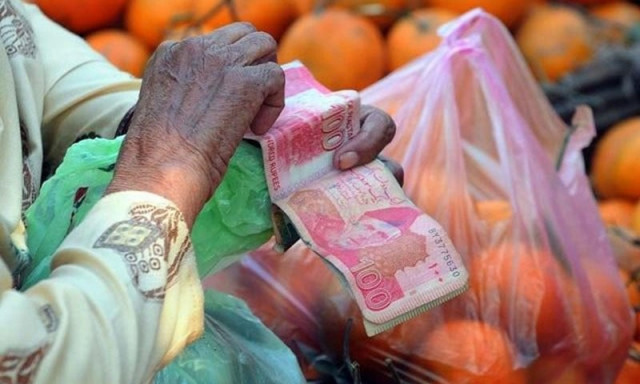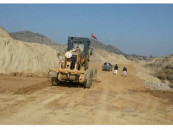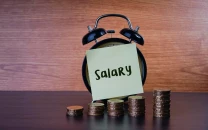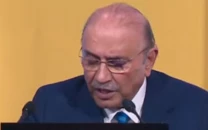Inflation breaks all records, hits 27.3%
PBS cites increase in rates of petroleum products, electricity as major reasons

The inflation rate in August jumped to a 47-years-high level of 27.3% due to the government’s decision to increase prices of electricity and fuel, as it burdens consumers of the petrol even more than what is required under a deal with the International Monetary Fund.
The Pakistan Bureau of Statistics (PBS) on Thursday reported that the year-on-year inflation rate remained at 27.3% in August, the highest rate since May of 1975 when the reading had been recorded at 27.8%.
The adverse impacts of the floods and consequent disruption in food supplies will be visible in the inflation reading for the month of September, which may push the rate far higher than that of August.
Transport group inflation rate was recorded over 63% on the back of petrol prices that saw an 84% increase, followed by one-third average increase in prices of perishable food items.
The cost of electricity also went up by 123% in August compared to a year ago due to increase in tariffs on account of annual tariff adjustment and monthly fuel price adjustment, severely hitting the budget of the middle-income group.
Read: Inflation rate highest since Great Recession
Some of the increase of the administrative prices was justified due to withdrawal of electricity and fuel subsidies. But in many cases the government was passing on the impact of inefficiency of the power sector and also recovering the prices of relief to one sector from another set of consumers.
Under a deal with the IMF, the government was required to increase the petroleum levy to Rs30 per litre on petrol by September 1 and Rs15 per litre on diesel in three phases. However on Wednesday, it increased the levy to Rs37.50 per litre on petrol –Rs7.5 per litre more than needed under the IMF deal –to lower taxes on diesel.
The petroleum levy was slashed to Rs7.5 per unit, in violation of a commitment given to the IMF.
While justifying the increase, Finance Minister Miftah Ismail said that the diesel consumption was expected to increase due to pumping out the flood water and the government did not want to increase the levy at this stage. He said that there would be no revenue loss, as the consumption of petrol was higher than the diesel.
The low-middle and middle-income groups started crumbling under an unbearable increase in the cost of living but there seems no realisation on part of the government which is burdening the salaried class more than the richer segments of the society.
The PBS data showed that the monthly inflation rate also increased by 2.4% in August, dashing the government and the State Bank of Pakistan’s hopes of containing the monthly inflation rate.
The core inflation, calculated after excluding the volatile energy and food prices, also soared to 13.8% last month in urban areas and 16.5% in rural areas.
The real interest rate turned when compared with the rural areas core inflation rate.
The government committed with the IMF to keep the real interest rates positive but the central bank has recently said that it would not risk recession for the sake of chasing a positive real interest rate.
The PBS reported that the CPI-based inflation rate increased to 26.2% in urban areas –a jump of another 2.6% in a single month.
In villages and towns, the inflation rate soared to nearly 29% -- an increase of 1.90% in just one month.
The pace of food inflation surged to 28.8% from 27% a month ago in cities and to over 30% in villages and towns last month, according to the PBS.
The prices of both non-perishable and perishable food products increased significantly last month. The food group prices surged over 29.5% in August compared to the same month a year ago. Prices of perishable food items increased nearly 34%, according to the PBS.
The federal government had set the inflation target at 11.5% for this fiscal year but the SBP distanced itself from the official target, saying that the inflation may remain in the range of 18% to 20% during the current fiscal year. After floods, the initial estimates suggest that the average inflation rate may remain in the range of 24% to 26%.
During the July-August period of this fiscal year, the average inflation rate already surged to 26.1%, according to the PBS.
The prices of pulses increased 114% last month compared to a year ago, followed by a 90% increase in the rates of onions and 81% for various types of ghee and cooking oil, according to the PBS.
The alcoholic beverages and tobacco group prices soared nearly 26%, clothing and footwear 17.7%, housing, water, electricity and gas fuels group prices surged 27.6% and the cost of hoteling also increased over 27% last month, according to the PBS.
Stationary got expensive by another 44% last month compared to a year ago, followed by a 39% increase in cost of cleaning and laundering. The construction materials became expensive by 28%.



















COMMENTS
Comments are moderated and generally will be posted if they are on-topic and not abusive.
For more information, please see our Comments FAQ